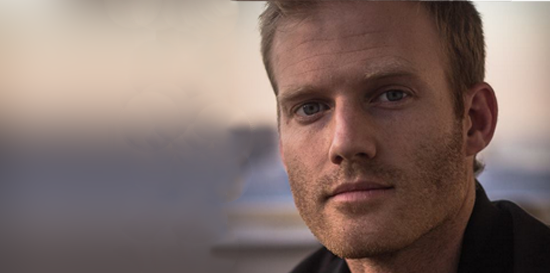 Life is a cycle of work and play, experiences and adventures, the comfort of routine and the lure of the great unknown. For Ian McNaught Davis, the time has once again come to get on the road, head somewhere far from home, and confront the endless possibilities of change.
Life is a cycle of work and play, experiences and adventures, the comfort of routine and the lure of the great unknown. For Ian McNaught Davis, the time has once again come to get on the road, head somewhere far from home, and confront the endless possibilities of change.
You shouldn’t hurry to catch a bus you have no control over. If you run, you’ll wait longer at the bus stop, staring at a curve in the road like you did for aeons after school.
Or perhaps you should run, and maybe you’ll feel the smugness of seeing the bus’s yellow headlights turning the corner when you arrive or feel the disappointment as its red tail lights evaporate up the hill.
Today I walk to my bus stop in Cape Town like I always have: with the stride of someone trying not to try too hard. I want to get to the bus stop quickly, while convincing myself I don’t have to – like the irrational urgency of someone waiting for toast to pop up or searching the sky for a shooting star.
The bus follows the same route it always has. As it climbs in altitude the domestic workers depart, taking their lively gossip and whooping laughs with them. Their employers fill the vacuum, heads tilted down and fingers flicking across screens.
This is how the middle class travel to work – to the sounds of nagging buzzers, gasping hydraulic doors and apologetic pleasantries as commuters look for spots next to empty seats.
Since the MyCiTi 103 route began, my chapter-length commuting time has halved. So instead of reading, I’ve taken to thinking. And often, on these journeys, I find myself thinking of a bus I took four years ago – one that heaved its way over the Great Dividing Range, a series of mountains that jut out of the plains of the Australian Outback like a stegosaurus’s spine. Here, I got the job that is most boys’ initial career choice: a cowboy.
Every day, I’d join a ragtag posse of Australia’s finest working class to herd cattle on my horse, Two Socks Jones, over a 330 000-acre cattle ranch. I worked with weathered, wiry blokes who bathed in cattle troughs and financed their beer by hunting dingos. (There was a 20-dollar bounty for each carcass.)
Our tasks included branding cattle, castrating steers, looking for rogue bulls and trying not to get charged by them. It couldn’t have been further from the office job I’d had before: editing other people’s writing on a screen – looking for rogue commas and feral split infinitives.
Later that year I got a job building a longhouse on a goat farm in Borneo. Which, it turns out, is the sort of thing that happens when you don’t complicate your life with things like “plans”. Within my first week, an enormous python ate the farmer’s dog.
The farmer was convinced the python was snake during day but worked nightshifts as a demon, so he arranged for a witchdoctor to exorcise it the following day. While watching the neighbourhood shaman dart around the jungle banishing evil spirits, I remembered how I used to worry about things like email etiquette and Microsoft Excel.
Perhaps these memories come to me so easily because they were dramatically different to the job that awaits me at the end of my commute. The outlandish stimuli had turned everything vivid: the clammy jungle that squirmed and quivered with life, the monsoon downpours in the afternoon, the clinging smell of horse sweat, the saddle-induced John Wayne gait, the raspy charm of the rural Aussie and their ability to use the F-word anywhere, like a linguistic Swiss army knife.
It was change that brought new ways of travelling (horses), new fears (pythons) and new sources of beer money (dingos). Change introduced me to things I never expected to see (castrations and exorcisms) when I enrolled in an arts degree a decade earlier. And it has been a niggling craving for change that has haunted me while staring outside windows.
Last week, I quit my job to cycle up Africa, photographing people and writing their stories. I’ll be tracing the Drakensberg, then zigzagging up the coast of East Africa and curling inwards to Central Africa.
And I feel about the impending change the way I always have: with that giddy jolt when nervousness curdles with exhilaration as you walk from your desk to the front of the class when your teacher calls your name for an oral.
I think about my destination on this morning’s bus ride: an open-plan office decorated with pictures of grinning stock photography models in suits bouncing on exercise balls. I think about how I’ll be there until 17:00. Or until 17:05, so as not to look too obvious.
I think about my job as I always have: bursts of idealistic freewheeling in between traffic-jam gluts of boredom and first-gear crawls up slopes of routine.
I think about how I have a finite number of trips left on this bus – a place where I have spent the past three years draining books, smiling through small talk and suffering bouts of introspection.
At 17:05, I’ll have 62 more bus rides on the MyCiTi 103 bus.
I’d better hurry to get to the bus stop, then.
*View Ian McNaught Davis’s photography at http://ianmcnaughtdavis.com/ and follow his journey at http://theslowrideup.tumblr.com/.

Leave a Reply